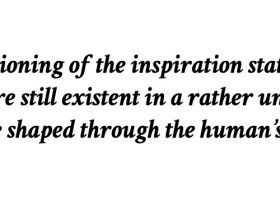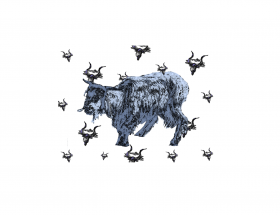When we eat our food, most of us don’t think twice about what might be on our plates. To many, it is nothing more than a banana, an avocado or a piece of meat. What we often forget are the damaging production processes behind these products. When we think of the food industry, most of us can’t put a face to a name. The anonymity granted by the broad term ‘food industry’, is what allows many of the sub-industries to hide and remain out scrutiny. Even though the wrongdoings of different food industries have repeatedly been uncovered and studied, no one really seems to pay much attention to it. However, ignorance can no longer be allowed to be bliss. Our food industry is damaging our society from mental health to atmospheric pollution.
Our food industry consists of many different subsectors but amongst the most damaging is the sector concerning itself with livestock, that is the meat/dairy industries.
The cruelty towards animals because of cost-efficient factory farming is infamous. However, it is important to consider the lesser known but equally poignant consequences of the meat industry. Whilst some of the consequences concern only the meat industry, many are applicable throughout food production and farming sectors. Consequences include the abuse and disregard of labour rights and substantial environmental damage as well as damage to our bodies.
Due to lacking labour laws and increased use of machinery, workers are at the will of the employer. Consequently, corporations abandoned unions, thus making their labour force become ‘dismissible’ and reinforcing their dominance over employees. Thus, employers often put efficiency and profit over the safety and well-being of their employees.
The concern for a worker’s safety mostly materializes in the meat-processing industry where some jobs are still required to be done by hand, such as killing and cutting meat. To increase efficiency, employers set a very high line speed which in combination with long shifts is the cause of most injuries in this sector. A human rights report in 2004 interviewed workers in that sector that described the line to be so fast they didn’t have time to sharpen their knives. Once they started becoming dull, they would have to “cut harder”, which is when they started to accidentally cut themselves. The long shifts and frequent overtime directly increased the risk of employees seriously hurting themselves. Corporations know this and actively ignore it.
Set aside from the physical damage acquired from this type of job, psychological damage is almost guaranteed. The workers responsible for killing the animals routinely observe animals being cut and dismembered in a conscious state, as well as being skinned and boiled alive. Not only are they constantly exposed to unthinkable cruelty and pain, but they are also burdened with being the perpetrators of such. There is no doubt that even witnessing this amount of cruelty, fear and pain is bound to have profound effects on the workers’ psychological state. Jobs in slaughterhouses have been positively correlated to PTSD, PITS, domestic abuse and substance abuse. The human rights report in 2004 also interviewed someone in this line of work who gave a truly horrifying statement:
“The worst thing, worse than the physical danger, is the emotional toll… Pigs down on the kill floor have come up and nuzzled me like a puppy. Two minutes later I had to kill them– beat them to death with a pipe. I can’t care. “
Sadly, the abuse of labour force and labour exploitation doesn’t end here.
The increasing influx of undocumented migrants all over the world have provided corporations in every food production sector with labour that is essentially blackmailed into poverty-level wages. Due to their undocumented status, deportation constantly looms over their heads and is then exploited as a means of intimidation to keep employees from reporting injuries, safety concerns and poverty-level wages. Amongst these employees, however, we can often also find victims of human trafficking that are essentially brought into ‘modern slavery’. Examples could be the Tomato greenhouses in Spain, Cocoa farms on the Ivory Coast or Shrimp farms in Myanmar to name a few. Eric Schlosser recounts the events in Florida where five residents had plead guilty of “enslaving Mexican and Guatemalan workers, brutalizing them and forcing them to work in farm fields” and thus claiming “Slavery” had returned to Florida.
With production, however, also comes waste.
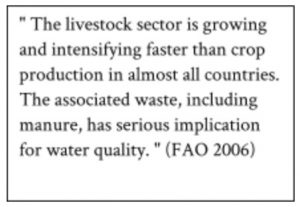 As a result of the most recent publishing of the IPCC, there has been an increased discussion of the effect of the meat and agricultural sector on our environment and climate change. These impacts mainly come in the form of water consumption, water pollution and air pollution. According to a study published in 2013, our agricultural sector consumes about 92% of freshwater resources, of which one third is reserved for livestock. The current water scarcity crisis is only aggravated by water pollution. The agricultural sector contributes to this by discharging waste products such as pesticides and organic waste into water bodies. As a result, many water bodies are subject to eutrophication and rid of oxygen thus destroying the ecosystem whilst also making the water non-potable for humans.
As a result of the most recent publishing of the IPCC, there has been an increased discussion of the effect of the meat and agricultural sector on our environment and climate change. These impacts mainly come in the form of water consumption, water pollution and air pollution. According to a study published in 2013, our agricultural sector consumes about 92% of freshwater resources, of which one third is reserved for livestock. The current water scarcity crisis is only aggravated by water pollution. The agricultural sector contributes to this by discharging waste products such as pesticides and organic waste into water bodies. As a result, many water bodies are subject to eutrophication and rid of oxygen thus destroying the ecosystem whilst also making the water non-potable for humans.
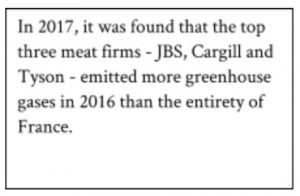 According to the UN’s Intergovernmental panel on climate change, agriculture accounts for 24% of greenhouse gas emissions. Agricultural activities produced mainly the greenhouse gases methane and nitrous oxide, excluding the carbon dioxide produced by transportation and machinery. Methane, a result of manure mismanagement in livestock industries, is one of the main causes of climate change. Nitrous oxide, a product of fertilizers and pesticides, is not only a greenhouse house, but it is a known threat to human health, for it leaves behind a residue on lungs when inhaled, eventually leading to lung diseases.
According to the UN’s Intergovernmental panel on climate change, agriculture accounts for 24% of greenhouse gas emissions. Agricultural activities produced mainly the greenhouse gases methane and nitrous oxide, excluding the carbon dioxide produced by transportation and machinery. Methane, a result of manure mismanagement in livestock industries, is one of the main causes of climate change. Nitrous oxide, a product of fertilizers and pesticides, is not only a greenhouse house, but it is a known threat to human health, for it leaves behind a residue on lungs when inhaled, eventually leading to lung diseases.
The continuous deforestation to acquire more cropland for agricultural purposes leads to the loss of biodiversity and the acceleration of climate change. Again, 80% of cropland use can be traced back to the industries involved with livestock.
Ultimately, we can conclude that the meat/dairy industries are not only extremely unethical but are also major drivers of climate change.
Whilst many believe veganism to be nothing more than a superficial lifestyle practiced by soccer moms, ‘annoying feminists’, ‘health gurus’ or ‘earth freaks’, I implore readers to put all prejudice aside for just a moment and objectively judge the valour of this dietary choice in the face of the state of our meat/dairy industries today.
Excluding meat and dairy products is much more an exertion of power as a consumer than a lifestyle. Our economies are consumer economies with industries relying on the consumer demand to make a profit. Thus, by renouncing meat/dairy produce you decrease demand for meat, even if it is by a small amount. This eventually results in decreasing profit for the corporations responsible. If a large portion of people were to switch lifestyles, the reduction in demand would be significant enough to undermine the profit margins of harmful corporations forcing them to adapt to remain in business. Hence, following a vegan diet is much more than just a trend, it is a step in the right direction for one person at a time.
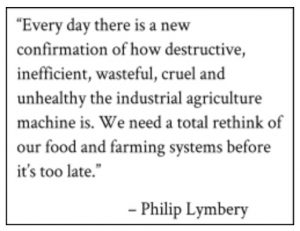 Even though being vegan may be an acute solution, it is neither a permanent nor the only solution. Many other proposals have been made for innovative farming methods and technology that would encompass the reduction of carbon emissions and the protection of biodiversity and animal welfare. A sustainable and healthy farming system would allow humans to continue consuming meat whilst also remaining within the limits of our ecosystems.
Even though being vegan may be an acute solution, it is neither a permanent nor the only solution. Many other proposals have been made for innovative farming methods and technology that would encompass the reduction of carbon emissions and the protection of biodiversity and animal welfare. A sustainable and healthy farming system would allow humans to continue consuming meat whilst also remaining within the limits of our ecosystems.
As for labour rights, however, it is important to turn to our governments. It is due to a lack of regulation and enforcement of legislation by regulatory agencies that it is possible for corporations to treat employees this way. Thus, protesting and promoting legislation relevant to the agricultural sector is key to reduce current labour exploitation.
We cannot continue to let the food on our tables be tainted with cruelty and injustice to our animals, our employees and our planet. The Earth and all the living beings that call it home have a right to be treated with respect and dignity. To live by this statement is not activism, it is common sense.



